UnityPoint Health - Blank Children's Pediatric Therapy - Des Moines
Information
Number of patients waiting reflects the current number of patients waiting to be seen. This number changes frequently and is not exact.
Hours & Directions
Hours of Operation
- Monday: 7:30 AM - 6:00 PM
- Tuesday: 7:30 AM - 6:00 PM
- Wednesday: 7:30 AM - 6:00 PM
- Thursday: 7:30 AM - 6:00 PM
- Friday: 7:30 AM - 3:30 PM
- Saturday: Closed
- Sunday: Closed
About Us
Blank Children’s Pediatric Therapy offers treatment for kids of all ages who may be in the hospital or who are living at home and come to see us in one of our clinics. Our services include audiology, occupational therapy, physical therapy and speech/language therapy.
Family-Centered Treatment
The focus of therapy is to meet your child’s unique needs so they can be their best self and to make things better for both you and your child. We work together with your family, the doctor and teachers to make a treatment plan. The plan will include fun learning activities that will be done one-on-one with a therapist and also with you at home. Part of the plan might be to get special equipment for moving or talking.
We work with your family, teachers and others to help your child be their best self.
Our Services
-
Occupational Therapy
Occupational Therapy (OT) is skilled treatment that helps individuals achieve independence in all facets of their lives. Occupational therapy focuses on fine motor skills, cognitive abilities, visual-perceptual skills and sensory-processing.Occupational Therapy
-
Pediatric Therapy
Our specialists work closely with you, your child, family physician or school to design an individualized program for your child. Physical, occupational and speech therapists create fun, hands-on activities and use various play and social techniques to address specific therapy challenges.Pediatric Therapy
-
Physical Therapy
Physical Therapy (PT) is the practice of rehabilitation of functional mobility after an illness, injury or disease. Treatments may include gait, balance and transfer training and exercise programs. Physical therapy offers specialty programs for treatment of lymphedema, vestibular (dizziness) issues, pelvic floor issue (bowel, bladder, pelvic organ prolapse, and pelvic pain) and dry needling.Physical Therapy
-
Speech Therapy
Speech therapy provides skilled therapy services to adults and children to facilitate improved communication, swallowing and cognitive skills.Speech Therapy
Our Specialties
Our experienced team of therapists see a wide variety of common childhood diagnoses and conditions. Blank Pediatric Therapy values evidence-based practice. To that end, we have staff certified or trained in:
- Atypical development
- Autism Spectrum Disorder
- DIR Floortime - developmental, individual-differences, and relationship-based model
- Functional Electrical Stimulation for motor learning
- Inpatient to outpatient care from the PICU, NICU and acute floors
- Neuro-Developmental Treatment
- Post-surgical care
- Treatment of the medically complex
Physical Therapists (PTs) help children learn to move better or with less pain. If your child isn’t keeping up with their friends, we will help teach them how to roll, crawl or walk. If your child has pain with a sport or activity, we will work with you to figure out why and change or improve the way he or she moves so they can keep doing what they love! Physical therapists test strength, alignment, ability to move and activity tolerance. We are trained to make therapy feel like play and use activities that interest your child. When this play is also done at home, your child will live their very best life!
- Brachial plexus
- Certified Hand Therapy
- Congenital limb difference and limb loss
- Gait analysis
- Low muscle tone
- Neonatal touch and massage from certified neonatal therapists
- Pediatric Pelvic Health program is over 10 years old and growing
- Pelvic health care
- Schroth-certified physical therapists for treatment of scoliosis: first in the Des Moines area
- Serial Casting for toe walking program is over 20 years old, exceptional outcomes
- Torticollis
Occupational therapists (OTs) help kids do as much as they can for themselves in all areas of their lives. OTs look at small movements, strength and coordination that help with selfcare. They also test seeing, writing and how a child plays alone and with others. Kids may need us if they have been hurt or have been sick and become weak. Some kids don’t like bright lights, loud noises or certain clothes. We are experts in looking at how a child understands and reacts to the world around them. We also help children who don’t eat well by slowly giving more options. We work with teachers and other therapists to limit physical barriers and get your child equipment they may need to be their best self.
- Feeding therapy
- Low vision
- Sensory Integration
- Sensory-based behavior management
- Therapeutic Listening
Speech therapists help kids of all ages talk and communicate better. We test speech, feeding and swallowing and look for problems with the muscles of the mouth, the tongue or the jaw that might make these things hard. We look at how well a child understands words, follows directions, remembers or solves problems. We work with kids to help them speak clearer or to put words together to communicate better.
- Articulation
- Childhood apraxia of speech
- Communication
- Digital Health and Wellness – effects of screen time on language development
- Experts in Augmentative Alternative
- Feeding therapy, including sequential oral sensory (SOS) feeding
- Gestalt language learning
- NOMAS – Neonatal Oral-Motor Assessment Scale certification
- Stuttering
- Video Swallow Studies
Audiology Audiologists test your hearing. If you think your child is not hearing well, we can test it by using sounds or by playing games to see how they react. Hearing tests for babies are done while they are in the hospital sleeping. These tests are painless and take only a couple of minutes. If a child needs help to hear better, hearing aids may be needed. When a child receives a hearing aid, audiologists manage the fitting and adjustments of the device. We can also talk about other things that can help children hear better.
What to Expect
Therapy is most effective when providers and families work as a team. We strive to create relationships built on open and honest communication with the families and children we serve.
Blank Children’s Pediatric Therapy provides treatment in blocks, or episodes, of care. While the actual length of an episode may vary, a general rule of thumb is approximately 12 weeks. Research indicates that shorter bursts of therapy along with home programming are highly effective in helping children with a variety of diagnoses improve. You may have one episode or a few episodes of care before your child is appropriate to take a break from therapy in order to work on their newly developed skills in a more natural environment such as home, school and the community.
Therapy in the clinical setting is designed to help children improve their functional abilities and teach new skills. Our therapists will work closely with your family to:
- Continuously assess and communicate your child’s abilities and progress
- Set meaningful and functional goals
- Provide activities to work on outside of therapy
- Decide how often therapy appointments should occur
Why Episodic Care?
Many children will benefit from blocks of therapy provided throughout childhood. Breaks from therapy allow you and your child to stay motivated and to make progress during therapy times. We will work with you to determine an appropriate plan for coming back to therapy after a taking a break.
Sometimes, progress may happen quickly when on a break and home program goals are met right away. Maybe your child experiences a significant medical change when on a break or a new challenge develops. All of these are reasons to reach out and talk with your therapist about options for checking in or starting a new episode of care.
Families tell us that ongoing therapy without breaks can be all-consuming. They say that it is hard to meet the social and emotional well-being of all family members when therapy is continuous. Other issues they mention are noticeable burnout of their child, financial burdens and the struggle to keep up the pace of a rigorous, continuous therapy schedule. Episodic care aims to help decrease these burdens on your family.
- Ongoing written and verbal communication regarding your child’s skills, progress and therapy goals
- Individualized episodes of care around specific goals made in collaboration with you
- Treatment options based on evidence-based practices
- Functional home programming
- Therapy schedules that meet child and family needs
- Collaboration with other health care and community-based providers
- Referrals to community resources to optimize your child’s growth and development
- Communicate openly with your therapist regarding your needs and goals for your child
- Ensure a parent, guardian or legally responsible party attends therapy visits
- Actively participate in therapy sessions
- Complete home programming activities
- The evaluating therapist will make recommendations based on evaluation results and family needs and goals. Options could include, but are not limited to: direct therapy, future re-evaluation, follow-up phone call/email and referral to community resources.
- If therapy is recommended, your child will be placed on a wait list with information regarding your locations that work for you as well as days or times that do not work for you.
- If your needs change, it is your responsibility to update our schedulers.
- You will receive a call from Blank Children’s Pediatric Therapy when there is an opening aligned with your preferences.
- You will likely be asked to commit to weekly appointments for 12 consecutive weeks. If you know that you cannot bring your child to at least 75% of these schedule appointments, please let the scheduler know and we will work with you to explore other options.
After your first episode of care, one of the following will happen.Your child may:
- Receive a second, consecutive episode of care targeting new goals
- Take a break from direct therapy to complete home programming and gain mastery of skills worked on in therapy
- Be discharged from therapy with a home program in place to continue working on skills targeted in therapy
Our Providers

Alexandra Walker, DPT, C/NDT
Pediatric Physical Therapy

Angela Rider, OTR/L
Pediatric Occupational Therapy

Sydney Kerska, M.A., CF-SLP
Pediatric Speech-Language Pathology

Sarah Lindstrom, OTD
Pediatric Occupational Therapy
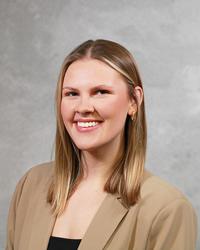
Grace Brennecke, M.A. CF-SLP
Pediatric Speech-Language Pathology

Laura Moats, MS, CCC-SLP
Pediatric Occupational Therapy, Pediatric Speech-Language Pathology
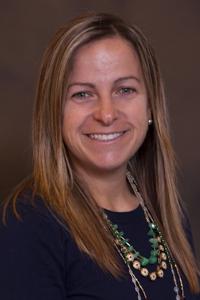
Liz Rivenburgh, MPT
Pediatric Physical Therapy

Lisa Fuchs, DPT
Pediatric Physical Therapy
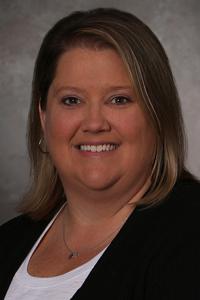
Amy Couchman, M.A., CCC-SLP, CNT
Pediatric Speech-Language Pathology

Allison Stanley, MOT, OTR/L
Pediatric Occupational Therapy

Breck Coulter, OTD, OTR/L
Pediatric Occupational Therapy

Jordyn Harris, M.A. CCC-SLP, CBIS
Speech-Language Pathology

Jolene Kramer, MSPT
Pediatric Physical Therapy
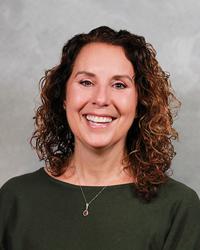
Jacqueline Cotter, DPT
Pediatric Physical Therapy
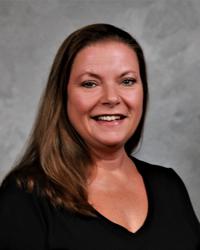
Jill Kellis, MSPT
Pediatric Physical Therapy

Jodi Howard, DPT
Pediatric Physical Therapy

Jillian Frost, MS, CCC-SLP
Pediatric Speech-Language Pathology
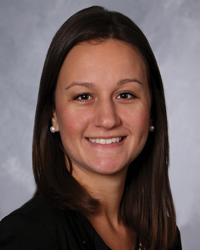
Claire Danielson, PT, DPT
Pediatric Physical Therapy

Candice Palea, OTD, OTR/L
Pediatric Occupational Therapy
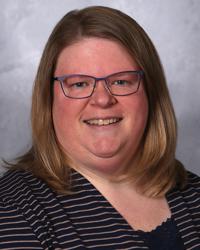
Robyn Dlouhy, MOT, OTR/L
Pediatric Occupational Therapy

Rachel Witt, OTR/L
Pediatric Occupational Therapy

Kristin Riley, DPT
Pediatric Physical Therapy

Rebekka Foreman, PT, DPT
Pediatric Physical Therapy

Rebecca Weller, DPT
Pediatric Physical Therapy

Reid Lefler, OTR/L, OTD
Pediatric Occupational Therapy
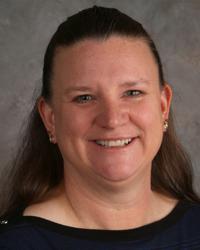
Kathy Pilch, MPT, C/NDT
Pediatric Physical Therapy

McKenzie Hoffman, M.A., CCC-SLP
Pediatric Speech-Language Pathology

Kristen Fox, MS, CCC-SLP, BIES
Pediatric Speech-Language Pathology
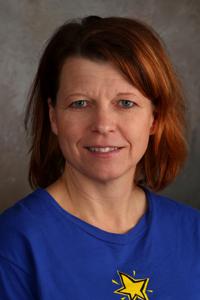
Debra Spenner, OTR/L
Pediatric Occupational Therapy
Case History Forms
Please complete the proper form below before your first appointment. You can download the form and fill in the answers within the PDF. Please bring the pre-visit paperwork with you to your first appointment.
Helpful Resources
At Blank Children’s Pediatric Therapy, we are committed to supporting families with the tools and information they need to thrive. Below, you'll find a curated list of resources designed to complement the care we provide. These include educational videos and articles tailored to the needs of children and families. Whether you're looking for tips on managing pediatric therapy at home or staying informed about your child’s development, these resources are here to empower and guide you every step of the way.
Are you looking for speech therapy resources to use while waiting for your scheduled appointment with us? We have compiled a great list of resources to get you started.
Educational Videos








